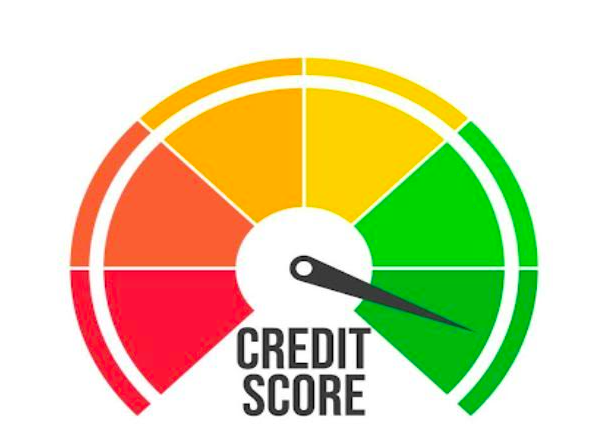Commercial insurance underwriting is a critical process in the insurance industry, involving the assessment and evaluation of risks associated with insuring businesses. Underwriters play a pivotal role in determining the terms and conditions of insurance policies, ensuring that they are tailored to meet the specific needs of commercial clients while also protecting the insurance company’s financial interests. This field requires a deep understanding of various industries, risk management principles, and regulatory requirements. As the business landscape continues to evolve, so does the demand for skilled underwriters who can navigate complex commercial environments and provide innovative insurance solutions. Pivoting into commercial insurance underwriting can open doors to a rewarding and dynamic career.

Here are top ways to pivot into commercial insurance underwriting
1. Acquire Relevant Education and Certifications
Acquiring relevant education and certifications is crucial for those looking to pivot into commercial insurance underwriting. Start by pursuing courses in insurance, risk management, finance, or business administration. These disciplines provide a solid foundation of knowledge essential for understanding the complexities of underwriting. Additionally, specialized certifications such as the Chartered Property Casualty Underwriter (CPCU) or Associate in Commercial Underwriting (AU) can significantly enhance your credibility and expertise.
The CPCU designation, for example, covers a broad range of topics including insurance law, accounting, and risk management, demonstrating a comprehensive understanding of the field. The AU certification, on the other hand, focuses specifically on the principles and practices of commercial underwriting, providing targeted knowledge that can set you apart in the industry. By investing in these educational pursuits, you not only gain valuable skills and knowledge but also signal to employers your commitment to professional development and excellence in commercial insurance underwriting.
2. Develop Analytical and Technical Skills
Developing strong analytical and technical skills is essential for success in commercial insurance underwriting. Proficiency in data analysis tools and software used in underwriting processes can significantly enhance your ability to evaluate risks accurately. Tools like Microsoft Excel, SQL, and specialized underwriting software are invaluable for analyzing large datasets and identifying trends and patterns that inform underwriting decisions.
A deep understanding of financial statements is crucial, as it allows underwriters to assess the financial health and stability of potential clients. Familiarity with risk assessment models, such as predictive analytics and catastrophe modeling, further equips underwriters to evaluate and quantify risk more effectively. Industry-specific risk factors, such as regulatory changes, economic conditions, and emerging threats, must also be considered to make informed underwriting decisions. By honing these analytical and technical skills, you can provide more precise risk evaluations, offer better pricing strategies, and ultimately contribute to the financial stability and profitability of your insurance organization.
3. Existing Skills and Experience
Transitioning into commercial insurance underwriting can be smoother if you possess a background in finance, risk management, or a related field. Such experience provides a strong foundation, as many of the skills and knowledge areas overlap significantly. Highlighting your analytical skills, for example, showcases your ability to interpret data, assess risks, and make informed decisions—core competencies in underwriting. Attention to detail is another critical attribute, ensuring that all relevant factors are considered and accurately documented during the underwriting process.
Experience in evaluating risks, whether through previous roles in finance or risk management, demonstrates your capability to identify potential issues and develop strategies to mitigate them. By emphasizing these existing skills and experiences, you can position yourself as a strong candidate for a role in commercial insurance underwriting. Employers value candidates who can bring a comprehensive understanding of risk assessment and financial analysis, making the transition into this specialized field more seamless and impactful.
4. Gain Experience in Related Roles
Gaining experience in related roles such as insurance sales, claims adjusting, or risk assessment can be instrumental in transitioning to commercial insurance underwriting. These roles offer valuable insights into the insurance industry, helping you understand its dynamics and intricacies. Working in insurance sales, for instance, allows you to grasp the needs and concerns of clients, which is crucial for tailoring underwriting solutions. Claims adjusting experience provides a deep understanding of policy applications, loss evaluations, and the importance of accurate risk assessment.
Risk assessment roles, on the other hand, hone your ability to identify, analyze, and mitigate potential threats, directly aligning with the skills needed in underwriting. Each of these positions builds a solid foundation of industry knowledge and practical skills, making the transition to underwriting smoother. By leveraging your experience in these areas, you can demonstrate a comprehensive understanding of the insurance lifecycle, ultimately enhancing your qualifications and readiness for a successful career in commercial insurance underwriting.
5. Network with Industry Professionals
Networking with industry professionals is a vital step in pivoting into commercial insurance underwriting. Building connections can open doors to new opportunities and provide valuable insights into the field. Attending industry events. Such as conferences, seminars, and workshops. That allows you to meet and engage with experienced underwriters, hiring managers, and other key players in the industry. These events are excellent venues for learning about the latest trends and best practices in underwriting. Joining professional associations, such as the Chartered Property Casualty Underwriters (CPCU) Society or the Risk and Insurance Management Society (RIMS). It offers access to a network of professionals and resources that can aid in your career development.
Additionally, leveraging platforms like LinkedIn enables you to connect with industry professionals, join relevant groups, and participate in discussions. These connections can provide guidance, mentorship, and job leads, making your transition into commercial insurance underwriting more successful and well-informed.
Conclusion
Pivoting into commercial insurance underwriting involves a strategic approach to acquiring the necessary skills and experience. Start by obtaining relevant education and certifications, such as CPCU or AU, to enhance your credibility. Develop analytical and technical skills by becoming proficient in data analysis tools and understanding financial statements and risk models. Leverage your existing skills and experience in related roles. Like insurance sales or claims adjusting, to build a solid foundation. Networking with industry professionals through events and platforms like LinkedIn can also open doors to opportunities and provide valuable guidance. By combining these strategies, you can effectively transition into a rewarding career in commercial insurance underwriting.
Frequently Asked Questions
1. What educational background is required for a career in commercial insurance underwriting?
A background in finance, risk management, insurance, or business administration is highly beneficial. Courses and certifications such as Chartered Property Casualty Underwriter (CPCU) or Associate in Commercial Underwriting (AU) can further enhance your qualifications.
2. How important are analytical and technical skills in underwriting?
Analytical and technical skills are crucial for evaluating risks and making informed decisions. Proficiency in data analysis tools, financial statement interpretation, and risk assessment models is essential for success in underwriting.
3. Can previous experience in insurance sales or claims adjusting help in transitioning to underwriting?
Yes, experience in insurance sales, claims adjusting, or risk assessment provides valuable insights into the insurance industry and helps build relevant skills. This experience can make your transition smoother by offering a strong foundation in understanding risk and policy applications.
4. How can networking assist in moving into commercial insurance underwriting?
Networking with industry professionals can open doors to new opportunities and provide valuable guidance. Attending industry events, joining professional associations, and leveraging platforms. Like LinkedIn can help you connect with underwriters and hiring managers who can offer job leads and career advice.
Read More:
- Bike Insurance: Premium Details And How To Buy
- How safe private insurance companies are?
- 7 principles of Insurance which every investor should know
- Why should you avail life insurance?

Hello, I am Tanisha Kriplani, graduated in computer science from Delhi University. I am passionate about web content writing and have a strong interest in Data Analytics and Data Engineering.












